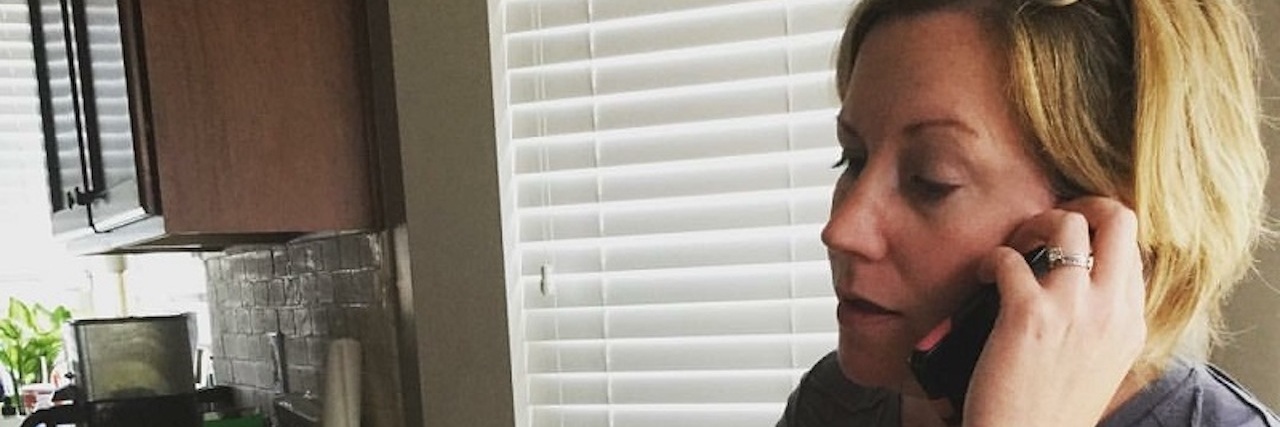I’ve always been a quiet person (until you get to know me, I suppose), someone who would rather avoid confrontation than speak up and “cause trouble.”
This all changed when I became part of the disability community 13 years ago, as the mother of an awesome kid with Down syndrome. With the birth of my son also came the birth of an advocate: me.
It wasn’t an immediate change; I still struggle to know when and how to speak up, but in the last year I’ve definitely found myself more determined to have my voice heard. Not only have I advocated for my son, but I’ve gone beyond that to also share my concerns with elected officials in terms of federal and state issues that affect the Down syndrome community and the larger disability community. For the woman who hates phone calls, this was a huge leap outside of my comfort zone, but I did it anyway.
I fought through nerves and feeling like I was too inexperienced to make a difference to call, email, fax (thanks, ResistBot), and tag my elected officials on social media in order to be heard. Why, though? Why would this introverted mess put herself through all of this? How did this stressed out mother of three become an advocate?
Four reasons:
1. My head nearly explodes every time I hear someone drop the R-word.
Seriously, folks. It’s 2018! Let’s get it together. There are other words you can substitute instead of labeling something or someone as “r*tarded” when you truly mean “ridiculous.” Fix it, please, but until you do, I will be here to correct you and let you know why your word choices are inappropriate.
2. Others in my community don’t understand.
A few months ago when I was picking up one of my kids from school, another parent came flying in, irritated and loudly proclaimed “Sorry I’m late, but a handicap bus took six freakin’ minutes to unload and I was stuck there behind them!” Had I not been so busy biting my tongue to keep my initial reactions in check, I would have thanked that parent for their patience in allowing a student with a disability to safely get off their bus. But I stood there, my left eyebrow grazing the ceiling, incredulous that someone would be that ignorant. In this instance, something that allows a child with a disability to safely travel to school was simply dismissed as a burden. So many times the disability community is overlooked because something that helps them could potentially be seen as an inconvenience to everyone else. I’ve seen this in education and workplace settings, and I’m sure it exists in other places. It needs to stop, but until others realize this type of behavior is not acceptable, it won’t. Next time I find myself in this situation, I hope I will have enough grace and courage to politely engage and raise awareness.
3. My son has the same rights as everyone else.
Until recently, most of my advocacy has centered around my own son and his inclusion at school. Inclusion is a tricky thing, as there is no “one size fits all” formula to enact it in our schools, churches and workplaces. I am constantly striving to learn how to be a better advocate for my son so that he has the same opportunities as his non-disabled peers. Once his school years are complete, he has the right to work and participate in his community as an adult, and lately, it seems that some of the supports that will aide him in this have been jeopardized. Although I had very little experience calling my congressmen, I picked up my phone and called to express my concern about this. I am very fortunate to have fantastic mentors so I can continue to learn how to be the best advocate I can be for my son. It is definitely a learning experience, all around, and I am thankful I have the chance to learn as I go.
4. My kids need a strong example to follow.
More than anything, I want my kids to grow up to be confident participants in their communities. They have watched and listened to me make phone calls to Senators, they have asked about the countless emails I have sent, and they have participated in our video messages to our elected officials whom we tag on my social media profiles. I want them to know their voices can make a difference, no matter what the issue is, and that it is their responsibility and privilege to speak up. They are already on their way to becoming awesome advocates, and I could not be more excited and proud.
Advocacy, no matter how big or small, can be stressful and tiring. Often times, I am tempted to put off an email to my son’s school or a call to my Senator because I am exhausted. But, knowing the impact that can be made, I trudge on, hoping that my quiet, non-confrontational self can make a difference. If nothing else, I have a story to tell, a story that continues to unfold, day after day. Perhaps by sharing a bit of this story, others will be inspired to speak up for those who can’t yet speak up for themselves.
This is how change is made. Change is the ultimate goal of advocacy, and it is also the reward.
We want to hear your story. Become a Mighty contributor here.

